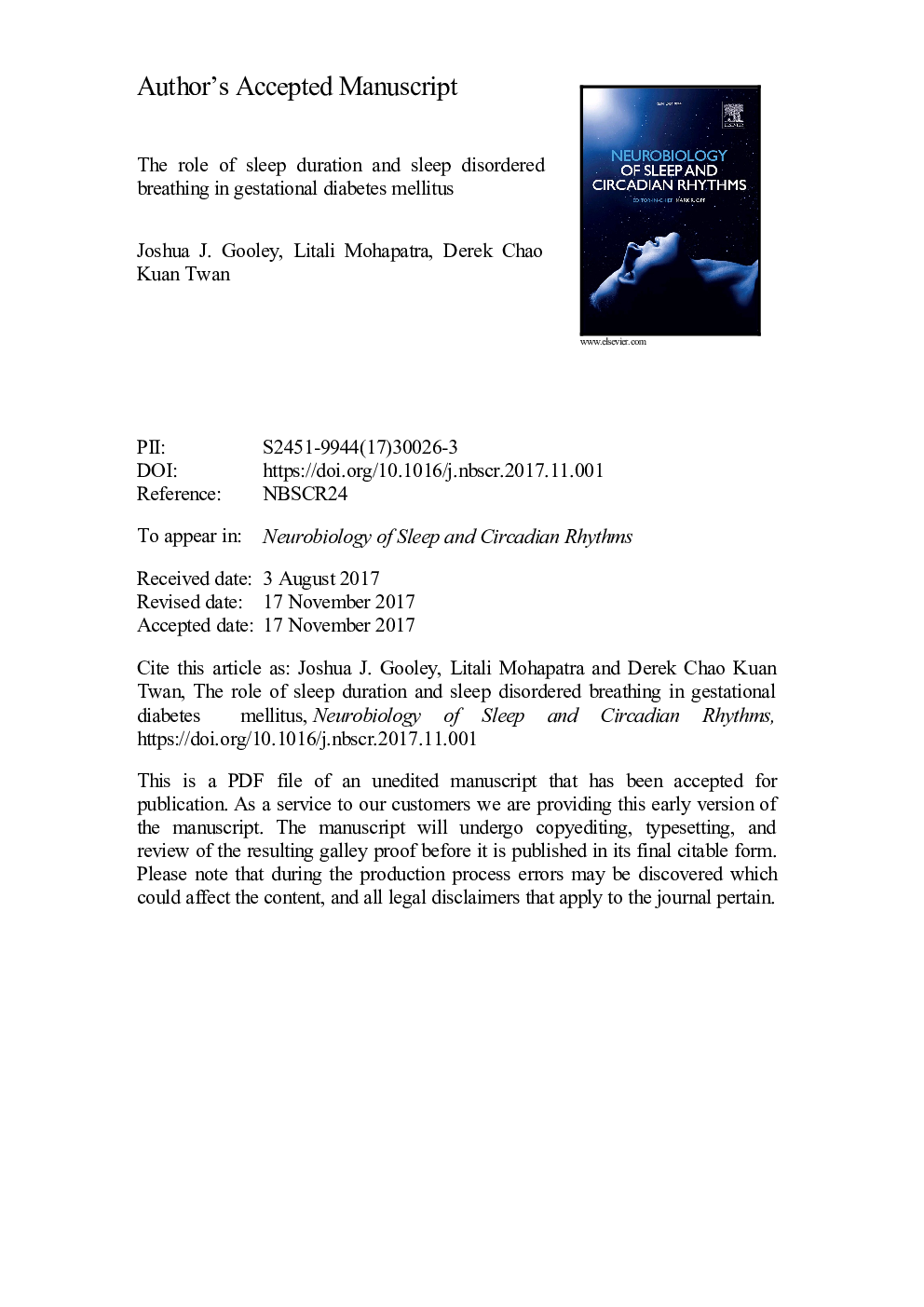| Article ID | Journal | Published Year | Pages | File Type |
|---|---|---|---|---|
| 8838704 | Neurobiology of Sleep and Circadian Rhythms | 2018 | 42 Pages |
Abstract
Many women experience sleep problems during pregnancy. This includes difficulty initiating and maintaining sleep due to physiologic changes that occur as pregnancy progresses, as well as increased symptoms of sleep-disordered breathing (SDB). Growing evidence indicates that sleep deficiency alters glucose metabolism and increases risk of diabetes. Poor sleep may exacerbate the progressive increase in insulin resistance that normally occurs during pregnancy, thus contributing to the development of maternal hyperglycemia. Here, we critically review evidence that exposure to short sleep duration or SDB during pregnancy is associated with gestational diabetes mellitus (GDM). Several studies have found that the frequency of GDM is higher in women exposed to short sleep compared with longer sleep durations. Despite mixed evidence regarding whether symptoms of SDB (e.g., frequent snoring) are associated with GDM after adjusting for BMI or obesity, it has been shown that clinically-diagnosed SDB is prospectively associated with GDM. There are multiple mechanisms that may link sleep deprivation and SDB with insulin resistance, including increased levels of oxidative stress, inflammation, sympathetic activity, and cortisol. Despite emerging evidence that sleep deficiency and SDB are associated with increased risk of GDM, it has yet to be demonstrated that improving sleep in pregnant women (e.g., by extending sleep duration or treating SDB) protects against the development of hyperglycemia. If a causal relationship can be established, behavioral therapies for improving sleep can potentially be used to reduce the risk and burden of GDM.
Related Topics
Life Sciences
Neuroscience
Behavioral Neuroscience
Authors
Joshua J. Gooley, Litali Mohapatra, Derek Chao Kuan Twan,
